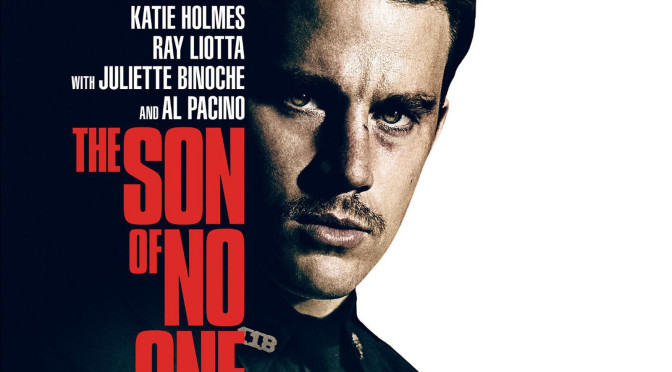Channing Tatum has been percolating in people’s minds at least since 2000, when he appeared in Ricky Martin’s “She Bangs” video (an appropriate debut for Tatum if ever there was one) and then segued into a prolific modeling career that allowed him an easy transition into film (you know, like Cara Delevingne). Although he rose to prominence with 2006’s Step Up, Tatum didn’t truly become “Channing Tatum” until Magic Mike and, unfortunately, Magic Mike XXL.
Perhaps this is why a movie like Dito Montiel’s The Son of No One, released in 2011, seemed like a good idea at the time to Tatum. Although all the ingredients for a mentally stimulating plotline are there (including a cast that features Al Pacino, Ray Liotta and Juliette Binoche), the script falls short of explaining many key details and developing the characters fully.
Centered around recently transferred cop Jonathan White (a rather overt choice in surname), The Son of No One takes place in 2002, in the wake of the 9/11 debacle that briefly deflected any ill will many residents had toward cops thanks to their help during and after the attack. The strategic time placement, however, does nothing to make the story seem more palatable or believable. White’s supposedly impenetrable character is easy to see through, especially with the straightforward flashbacks to his youth spent in the Queensbridge Projects, during which time circumstances led him to kill two “pieces of shit” that no one would notice missing. At least that’s the logic given to him by his deceased father’s former police partner, Detective Charles Stanford (Al Pacino).
The only other person who knows about what happened is Jonathan’s ex-best friend from the projects, Vincent (Tracy Morgan, in an unlikely dramatic role). When anonymous letters about the two murders from 1986 start trickling into reporter Loren Bridges’ (Juliette Binoche) office, Jonathan begins to panic that all of Vincent’s time spent in a mental facility has caused him to forget his promise not to tell. Jonathan’s wife, Kerry (Katie Holmes, perhaps emulating the washed out nature of her demeanor during her marriage to Tom Cruise), is increasingly enraged by his secrecy and late nights spent shrouded in mystery. This is the extent of her character development, which isn’t saying much considering the overall two-dimensionalness of everyone else in the film.
As Jonathan’s boss, Captain Marion Mathers (Ray Liotta), begins to reveal just how much he knows about Jonathan’s past–thanks to his rapport with Detective Stanford–he begins to doubt who he can really trust. In spite of the relatively short length of the movie, it takes an eternity for Montiel to unearth the true culprit behind the anonymous letters, a revelation that makes very little sense but is intended to accent the point that even “insignificant” people in the projects matter. In Montiel’s defense, however, this film was a launching pad to his more finely tuned work, like Boulevard. Nonetheless, it’s unfortunate for Channing Tatum’s early leading man filmography to be sullied by The Son of No One. Because even Step Up and Step Up 2: The Streets have more merit.






















